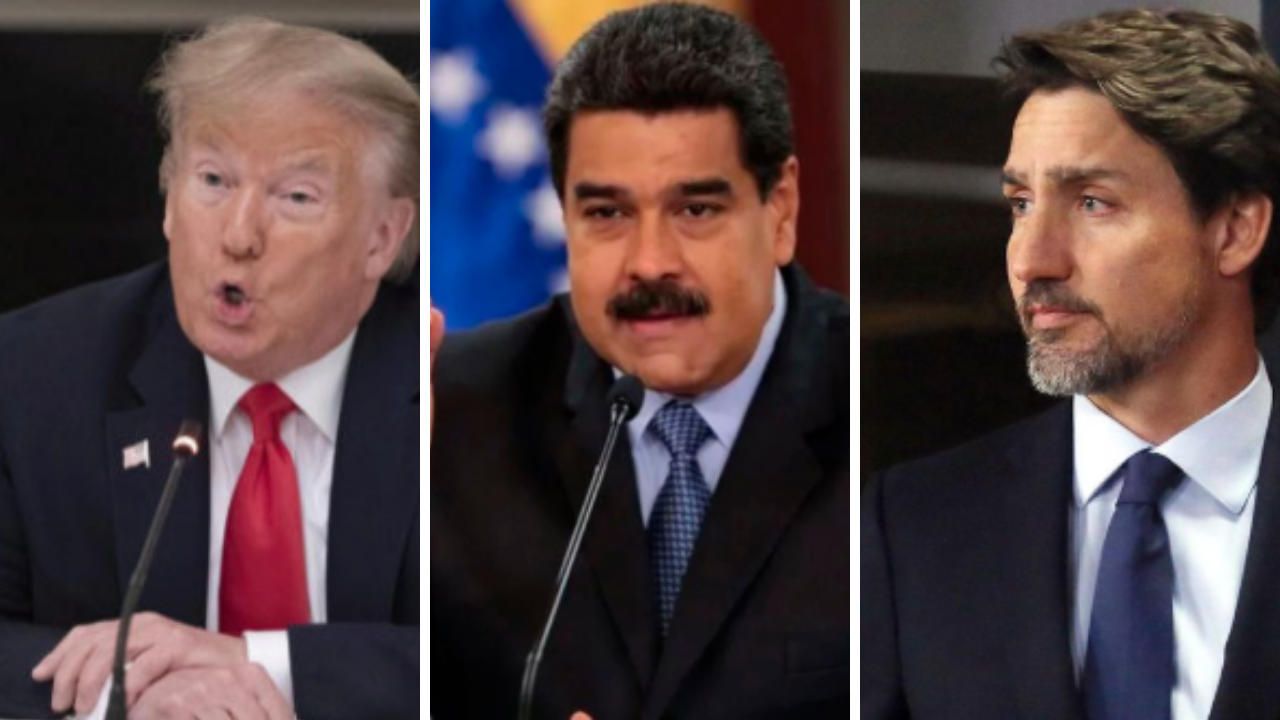Canadian "Venezuela democracy campaigners" refuse to debate
Written by: Bianca Mugyenyi
Substantive political debate is the lifeblood of democracy. A good debate can even be fun to watch.
As such, the Canadian Foreign Policy Institute was excited to organize a high-level debate on a top Canadian focus. After Venezuela’s Foreign Minister for North America, Carlos Ron, agreed to debate a Canadian counterpart on Canada-Venezuela relations we reached out to Canada’s Special Adviser on Venezuela, Allan Culham, to ask if he would debate “Canada’s role in Venezuela”. We suggested a mutually agreeable moderator and cosponsor to ensure everyone felt the questions and format were fair. Culham declined to participate.
After Culham’s refusal to engage we approached former Canadian ambassador to Venezuela and current head of the Canadian International Council Ben Roswell. He has been an outspoken proponent of Canada’s bid to remove the Venezuelan government, but he failed to respond to our request to debate.
The government and other proponents of Canadian policy in Venezuela won’t be able to avoid debating the subject forever. A growing coalition is questioning Canada’s policy towards Venezuela. Greenpeace Canada, 350.org, Idle No More, Climate Strike Canada, Voice of Women and 40 other groups, as well as David Suzuki, Naomi Klein, Stephen Lewis and sitting MPs Leah Gazan, Paul Manly, Alexandre Boulerice and Niki Ashton have endorsed an open letter to the Prime Minister that asks: “Why is Canada involved in efforts to overthrow Venezuela’s UN recognized government, a clear violation of the principle of non-intervention in other country’s internal affairs?” The question on Venezuela is part of a broader call for a “fundamental reassessment of Canadian foreign policy” released in the aftermath of Canada’s recent United Nations Security Council defeat.
Beyond the many Canadians wanting to debate the issue, the political situation in Venezuela is making it increasingly difficult to ignore. Nearly two years ago the Liberal government backed a plan to declare an opposition politician President of Venezuela. It has failed. Juan Guaidó’s chance of becoming President is weaker today than at any point since he claimed the presidency in January 2019 and his National Assembly mandate expires in five months.
Today, Venezuela’s opposition is divided between those who want to pursue the electoral path and those refusing to participate in the December legislative poll. Guaidó’s faction is oriented towards belligerent International actions that are rejected by most Venezuelans. Guaidó has refused to allow $1 billion of Venezuelan gold in England to be used to import food, has effectively given US-based CITGO over to a Canadian mining company and was recently embroiled in a failed invasion. Politicians hoping to win elections don’t support these types of measures. Nor do they support the dominant regional force adopting ever more punishing coercive economic measures against their country. Trump’s sanctions policy is undercutting ordinary Venezuelans ability to feed themselves.
So far, Trudeau has emboldened Trump’s bullying. They’ve adopted four rounds of sanctions against Venezuelan officials, they’ve built up a coalition of International opponents and were involved in orchestrating Guaidó’s recognition. But there has to be a limit to what the Liberals will support. Will Trudeau continue to promote Trump’s policy as reports of extreme hunger grow? Or if US naval vessels fire on Venezuela?
With Canadian officials unwilling to engage in a clash of ideas, a formal debate is impossible. Instead the Canadian Foreign Policy Institute has secured an online talk by Venezuelan Foreign Minister Jorge Arreaza on “Canadian interference in Venezuela”. We believe a Foreign Minister of a country of 30 million that’s had diplomatic relations with Canada for seven decades presenting on Ottawa’s efforts to overthrow his government is unique in the annals of Canadian foreign policy history.
To ensure it is dynamic and reaches the broadest possible audience, we are inviting journalists, including those who have written critically about the Venezuelan government, to ask Arreaza a question and follow-up.
Hearing different perspectives is an essential part of developing a democratic foreign policy.
It’s no doubt curious that those who have supported extreme measures in the name of promoting “democracy” in Venezuela are unwilling to debate the subject.
You can register for the event here: https://www.foreignpolicy.ca/venezuela
Bio: Bianca Mugyenyi is an author and former co-executive director of The Leap. She currently directs the Canadian Foreign Policy Institute.
More Articles
